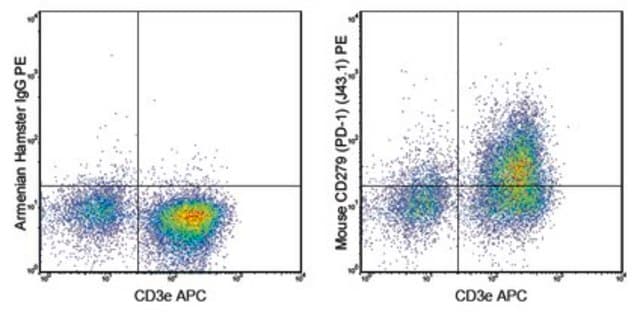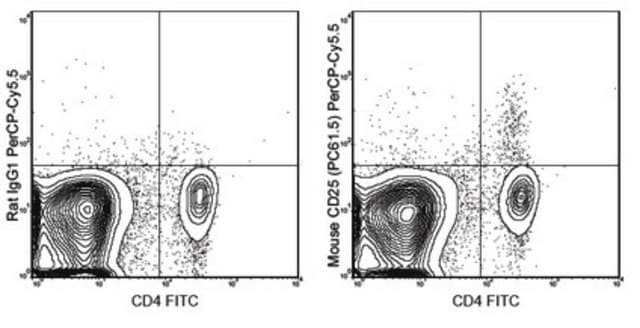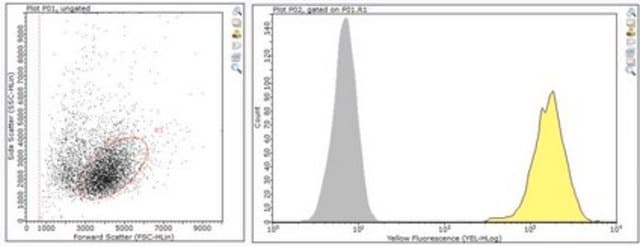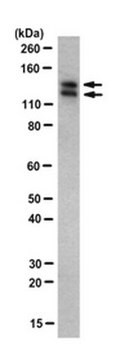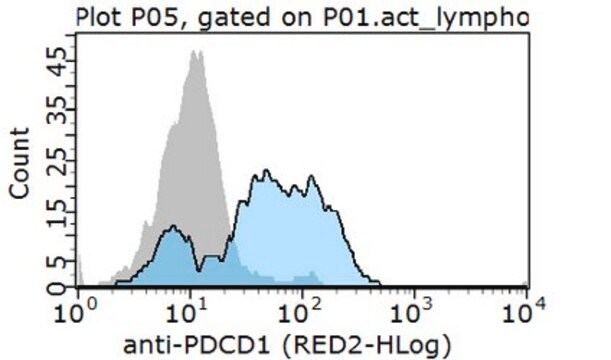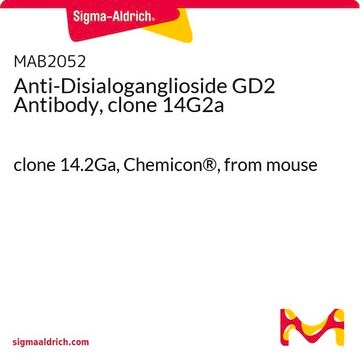MABF406
Anti-CD279 (PD-1) Antibody (mouse), PE, clone J43.1
clone J43.1, 0.2 mg/mL, from hamster(Armenian)
Szinonimák:
Programmed cell death protein 1, Protein PD-1, mPD-1, CD279
About This Item
IHC
IP
immunohistochemistry: suitable
immunoprecipitation (IP): suitable
Javasolt termékek
biológiai forrás
hamster (Armenian)
Minőségi szint
konjugátum
PE
antitest forma
purified antibody
antitest terméktípus
primary antibodies
klón
J43.1, monoclonal
faj reaktivitás
mouse
koncentráció
0.2 mg/mL
technika/technikák
flow cytometry: suitable
immunohistochemistry: suitable
immunoprecipitation (IP): suitable
izotípus
IgG
UniProt elérési szám
kiszállítva
wet ice
célzott transzláció utáni módosítás
unmodified
Géninformáció
mouse ... Pdcd1(18566)
Általános leírás
Immunogén
Alkalmazás
Inflammation & Immunology
Minőség
Flow Cytometry Analysis: 0.5 µg of this antibody detected CD279 (PD-1) in one million C57Bl/6 splenocytes.
Fizikai forma
Tárolás és stabilitás
Jogi nyilatkozat
Nem találja a megfelelő terméket?
Próbálja ki a Termékválasztó eszköz. eszközt
Tárolási osztály kódja
12 - Non Combustible Liquids
WGK
nwg
Lobbanási pont (F)
Not applicable
Lobbanási pont (C)
Not applicable
Analitikai tanúsítványok (COA)
Analitikai tanúsítványok (COA) keresése a termék sarzs-/tételszámának megadásával. A sarzs- és tételszámok a termék címkéjén találhatók, a „Lot” vagy „Batch” szavak után.
Már rendelkezik ezzel a termékkel?
Az Ön által nemrégiben megvásárolt termékekre vonatkozó dokumentumokat a Dokumentumtárban találja.
Tudóscsoportunk valamennyi kutatási területen rendelkezik tapasztalattal, beleértve az élettudományt, az anyagtudományt, a kémiai szintézist, a kromatográfiát, az analitikát és még sok más területet.
Lépjen kapcsolatba a szaktanácsadással